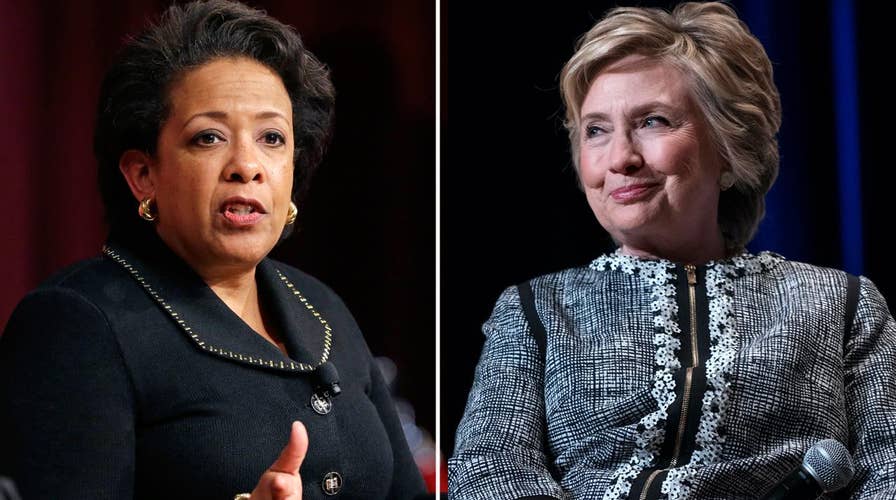Senate investigates Lynch's actions during Clinton probe
Former U.S. attorney general Judge Alberto Gonzales provides insight
The Senate Judiciary Committee has formally asked ex-Attorney General Loretta Lynch and others to respond to allegations of “political interference” in the FBI’s Hillary Clinton email probe, according to a letter released Friday.
The inquiry was prompted, in part, by a series of media reports raising questions about whether Lynch tried to stifle the investigation into former Secretary of State Clinton’s use of a private email server. Fired FBI Director James Comey also suggested in recent Senate testimony that Lynch sought to downplay the investigation.
“The reports come amidst numerous allegations of political inference in controversial and high-profile investigations spanning the current and previous administrations,” Committee Chairman Chuck Grassley's office said in a statement.
While Democrats have questioned whether President Trump tried to interfere in the probe of Russian meddling in the 2016 campaign, Republicans have countered by stepping up scrutiny of Lynch's actions.
The letters released Friday, though, were bipartisan. Grassley, R-Iowa; ranking Democratic Sen. Dianne Feinstein, D-Calif.; Sen. Lindsey Graham, R-S.C., and Sen. Sheldon Whitehouse, D-R.I., penned letters to Lynch and others seeking documentation and other details.
Graham already had expressed interest in Lynch testifying before the committee in the wake of Comey's testimony.
In the latest letters, the senators sought information that might determine the veracity of media reports suggesting Lynch may have offered assurances to the Clinton campaign about the probe.
Those articles are based on hacked documents whose authenticity has not been confirmed.
The letter cited an April New York Times article about a batch of hacked files obtained by the FBI, including one reportedly authored by a Democratic operative who voiced confidence Lynch would keep the Clinton probe from going too far.
Lynch and others who received the committee's letters have until July 6 to comply with the request.
The senators also refer to concerns stemming from Comey’s testimony about being uncomfortable with Lynch’s tarmac meeting last summer with Bill Clinton.
Comey also told Congress "the attorney general directed me not to call it an investigation and call it a matter -- which confused me."













































